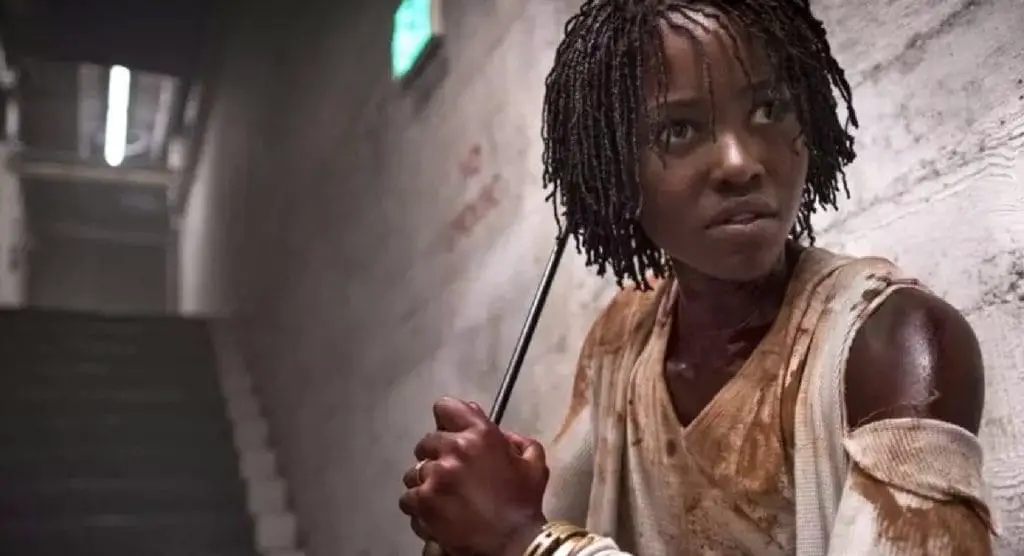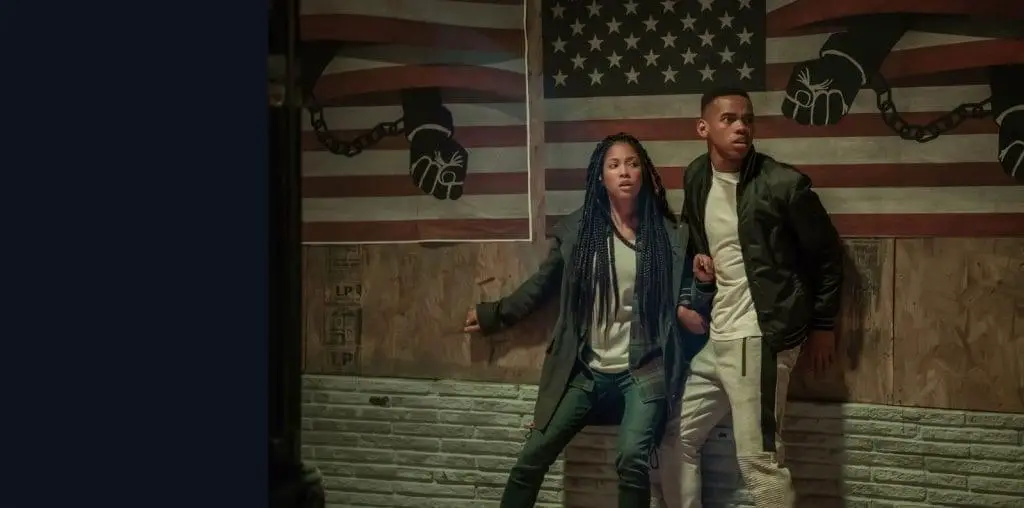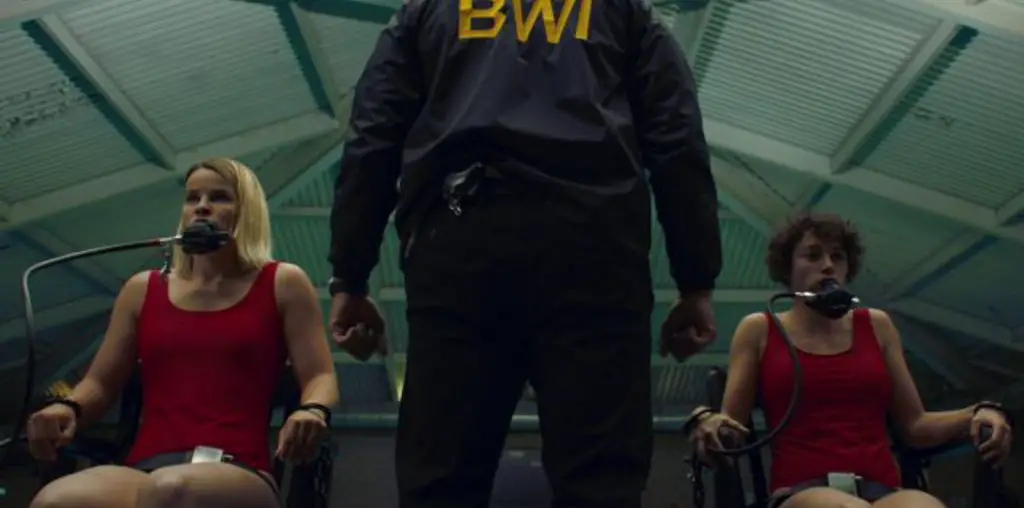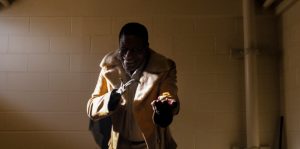
The killer at the center of this Candyman is not the “Tony Todd Candyman,” but a new mythos. In the 1970s, in Cabrini-Green, there lived an eccentric who had a hook on his hand because of an accident, always wore a long, fur-collared coat, and was mentally ill, but he wasn’t dangerous. The reason he was labeled Candyman was that he would always give candy to the neighborhood children. Unfortunately, police officers unjustifiably gunned him down after they got the “wrong suspect.” And now, having been reawakened, this Candyman seeks a new generation of victims. Funny enough, all of his “victims” happened to be privileged white folks. The same White folks who have taken over the newly posh area.
There are twists that I don’t want to give away, so I’m not going to go too much deeper. Instead, I want to talk about the message of the film. Peele has made a name for himself as a creator who takes the “Black experience” and equates it to the horror genre. Maybe DaCosta thought she had to take what he built to the next level. The problem is that she lacks the tact of Peele, who can be a little heavy-handed at times. The problem I had was that Candyman feels more preachy and woke than scary, taking the gentrification theme and making it the whole plot. Like a hammer hitting nail, the point of racial injustice was driven into our heads in literally every scene.
To be fair, the original Candyman had dealt with racial issues but with a sense of nuance while still focusing on the terror of the supernatural baddie. I never felt like everybody should be afraid of this killer… only White folks. This completely took me out of the film. The point of watching a horror film is to be frightened, to feel that you could be in the situation these characters are in. And the constant reminder of “police are bad” and “White culture vultures are bad” felt more like a CNN piece than a horror narrative.
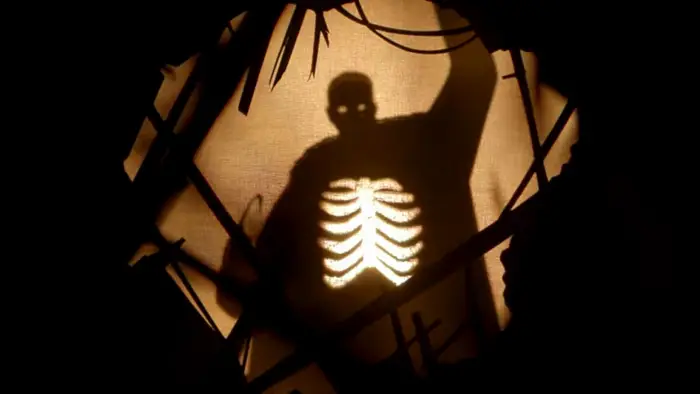
“…the visuals are simply amazing.”
Having grown up with the classic slashers of the 1980s, I understand that there are tropes that will be followed… usually, that of “teenagers and their awful parents need to die.” Because of this, I get that the trope of the Candyman franchise, especially the original, should be wanting revenge against White folks for what they did to him. But I still feel like this could have easily been addressed while still adding a sense of jeopardy to any and everyone.
As a huge fan of Peele and his body of work, my fear for him is being pigeon-holed into making “predictable suspense but with Black people” films and not being able to fully exercise his creativity. I believe he has a lot more to offer the cinematic world than what we’ve seen. As far as DaCosta is concerned, I think she has a bright future ahead of her. Even though I didn’t agree with most of her choices for this particular film, she definitely has the chops. And I believe she will eventually grow more comfortable in the director’s chair.
Said chops stem from the fact that the visuals are simply amazing. I think the use of shadow puppets to tell the backstory was creepy and creative. And the folklore of Candyman that was explored was unexpected, which I was very pleased by. In addition, the twist I mentioned earlier is done uniquely. Because of this, I will say Candyman is worth watching. But I will advise not going in with preconceived ideas or comparisons to the original because that is where the disappointment will hit you like a brick to the head.
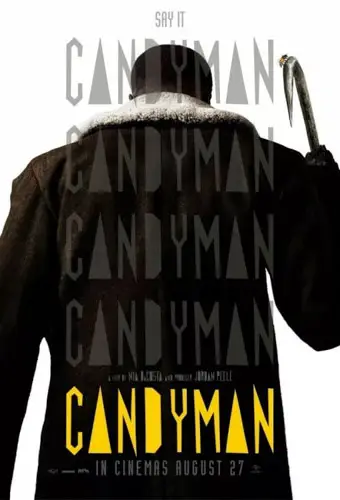
"…feels more preachy and woke than scary..."
